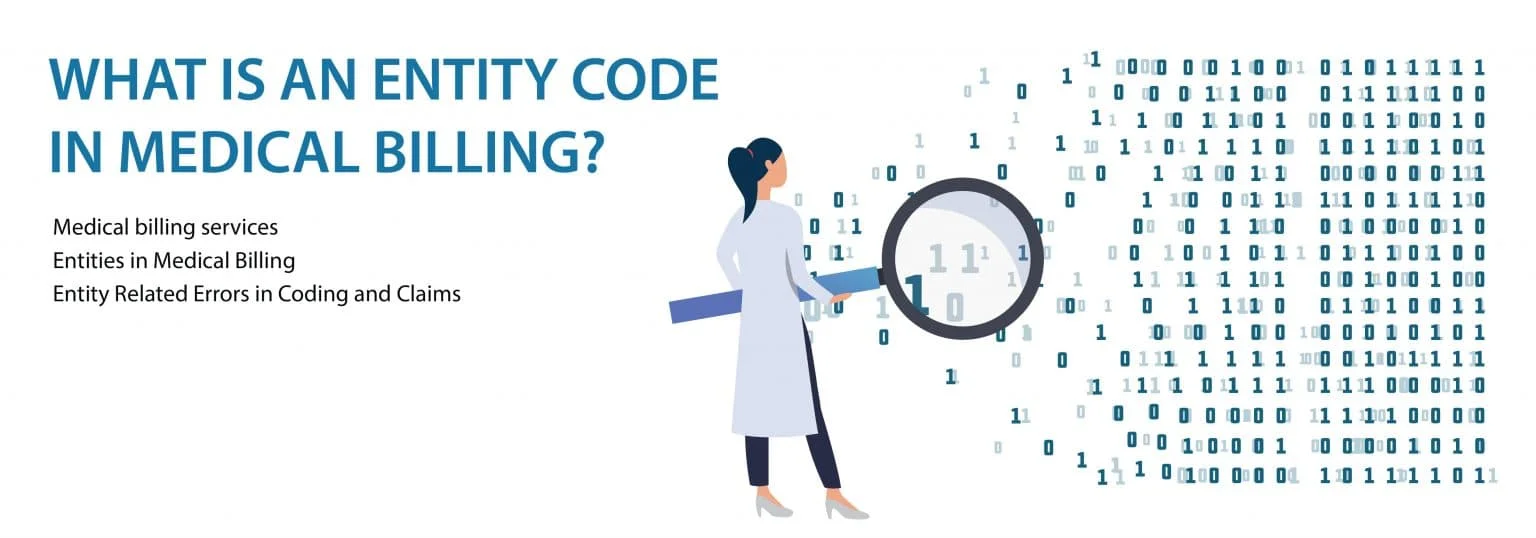Introduction:
An entity code is used in medical billing to identify the type of entity billing for the services. Entity codes are crucial for ensuring that the correct entity is being billed and that Medicare and Medicaid are not charged for the same service. These codes can be assigned by the provider, billing office, payer, or other healthcare professionals involved in the revenue cycle.
Entity codes help to ensure accurate billing and reduce the risk of claim denials. If the wrong entity code is used, it may result in billing errors, leading to payment delays or even penalties from Medicare or Medicaid.
Each entity is assigned a unique code, often referred to as an Entity ID Number, such as an NPI (National Provider Identifier) or TIN (Tax Identification Number). It’s essential for healthcare professionals and billing teams to use the correct code to prevent costly mistakes. If you’re unsure which code to use, always consult the provider, billing office, or payer for clarification.
Medical billing includes a lot of terminology, but with the right fundamentals of medical billing guide, even complex topics like entity code errors can be better understood. However, entity code errors on claim denials are among the more challenging issues to troubleshoot.
Understanding Entity Codes:
Entity codes are unique identifiers used in medical billing to distinguish between the different entities involved in healthcare services. These codes ensure the correct party is being billed, thereby reducing claim rejections. In medical billing, entities can include patients, providers, healthcare professionals, medical billing companies, and insurance carriers.
By accurately using entity codes, healthcare professionals and medical billing services can streamline the billing process and minimize delays in reimbursement.
Entities in Medical Billing
In medical billing, an entity refers to any individual or organization that plays a role in the healthcare revenue cycle such as a patient, healthcare provider, hospital, or an outsourced medical billing service acting as a third-party biller. Each entity is identified by a unique identifier, commonly an NPI (National Provider Identifier) for providers or a TIN (Tax Identification Number) for businesses. These Entity ID numbers are essential for ensuring accurate claims submission, eligibility verification, and Medicare/Medicaid compliance.
Understanding entity-related errors can be challenging for billing professionals because the claim form may reference multiple entities in different sections. A mismatch or omission in any entity’s information such as a missing ID, incorrect provider number, or outdated billing credentials can lead to claim denials or rejections, disrupting the revenue cycle management (RCM) process.
Entity Code Requirements:
Entity codes are key to accurate billing and to avoid errors in the billing process. Medical billing services use these codes to know what entity is billing for services. When using an entity code you must submit accurate and complete information including the entity’s name, address and ID #. If you don’t submit the correct entity code you will get claim denials and delayed payments which can impact your revenue cycle. So medical billing services must ensure all entity info is correct and up to date to make claims process smooth.
Confused by Entity Codes? Let Our Experts Help.
Request a Free DemoEntity Related Errors in Coding and Claims
When a claim is rejected or denied, the explanation should give you an indication of which entity is the problem by stating that it is the patient/client, or by what box it is in on the form. If it isn’t clear, you will need to contact the payer for clarification.
Different software may word explanations slightly differently, but the issues that arise are common to all of them. The following are a few of the entity code errors you may encounter.
- Entity’s health insurance claim number (HICN)—This error shows up when a claim has been corrected and resubmitted. In this case, the entity is the payer and the biller needs to ensure that the claim number assigned to the original claim by the payer is used.
- Entity’s contract/member number—Errors with this reference usually are pointing out missing information, and the entity is the patient. If the information was filled out in the claim, the problem could be that the patient’s coverage has changed, they were not covered on the date the service was delivered, or a newborn patient has not been added to the policy yet. This error will also show up if the claim has been submitted to the wrong payer since the patient’s member number or ID would not match with their system.
- This code requires the use of an entity code—In this case, the biller must attempt to determine which entity was not clearly identified by checking each box of the claim. In addition to the patient and the provider, be sure to check for correct identifying medical billing services and any referring physician, if applicable.
- Service Location: Entity’s Postal/Zip Code: This refers to the provider. Make sure to include the final four digits of the nine-digit zip code (not just 0000) if this shows up as an error.
In most cases, you will be able to determine which entity is indicated by the information being required, or the location on the form. In cases where this is not clear, a call to the payer is probably going to be required to find out exactly what information they need.
Medical billing is becoming more complex all the time. If you are still doing medical billing in-house, give us a call at 800-640-6409 or request a free demo. Our client case studies illustrate the benefits of having MedCare MSO handle billing and revenue cycle management (RCM) (RCM) and we are happy to answer any questions you have.
